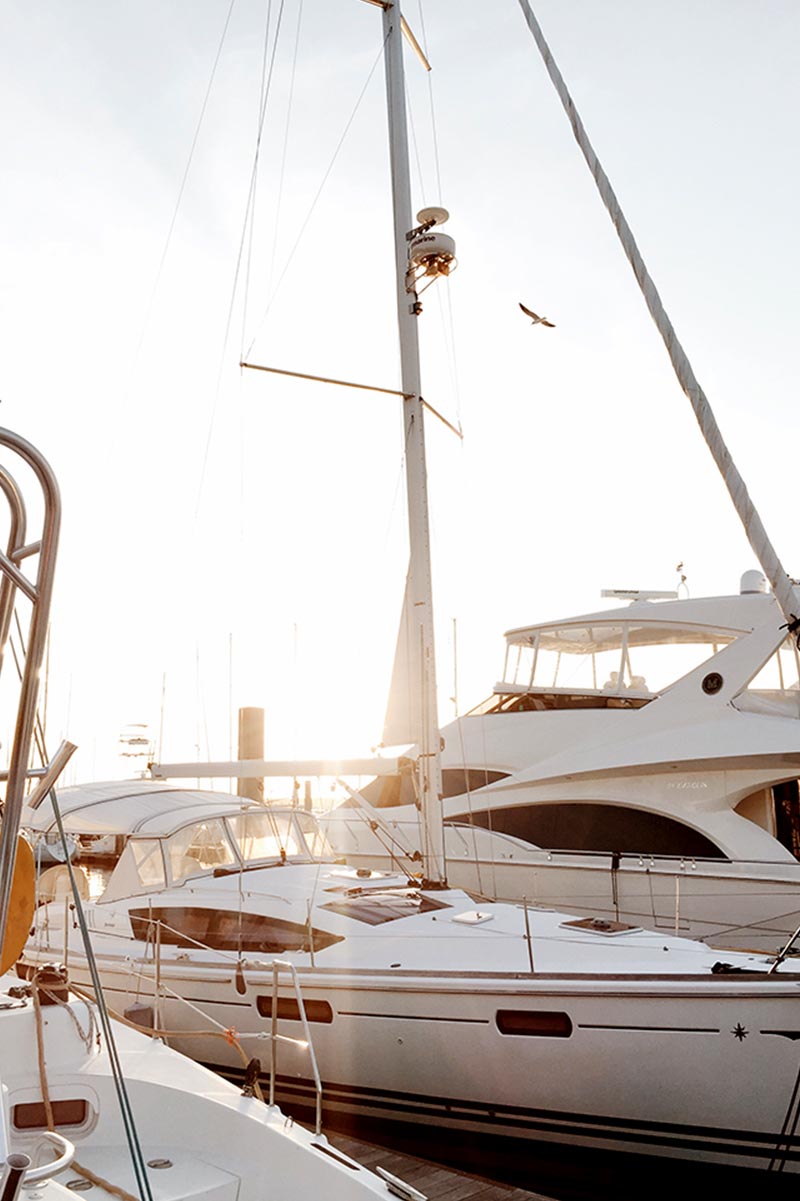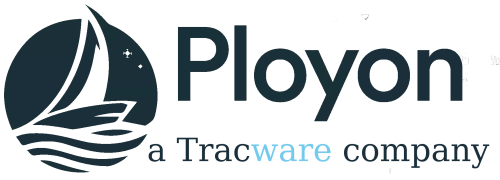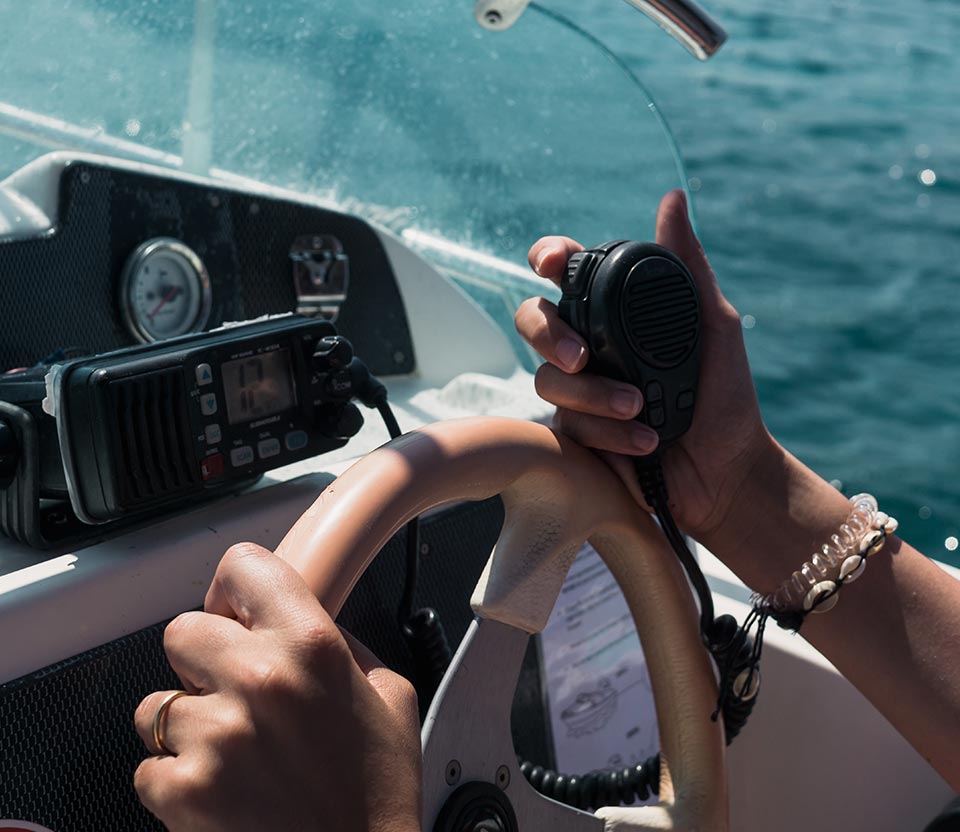
Part 3: The Link Between Proper Maintenance and Overall Safety
In the vast expanse of the open sea, the reliability of your vessel is paramount. The significance of boat maintenance cannot be overstated; it is the bedrock of a safe and enjoyable boating experience. As we delve into the third and final instalment of our series, “Navigating Safe Waters: The Importance of Boating Education and Training,” we shift our focus to the crucial link between proper maintenance and overall safety.
In our previous articles, we explored the essential role of boating education and training in fostering a culture of safety on the water. We discussed how knowledge and preparedness can make the difference between a minor inconvenience and a major disaster. Now, we’ll examine how regular boat maintenance fits into this safety equation.
"Knowledge is the anchor that secures your boat in tumultuous seas. Maintenance is the compass that ensures you're sailing in the right direction."


Boat maintenance is more than just a task to be ticked off a list; it’s a proactive measure that ensures the longevity of your vessel and the safety of its passengers. By understanding and addressing the maintenance needs of your boat, you can prevent breakdowns, avoid costly repairs, and most importantly, mitigate the risk of accidents on the water.
Join us as we navigate through the importance of routine maintenance tasks, the role of education in understanding your boat’s maintenance needs, and real-world examples of how proper maintenance can prevent accidents. Let’s set sail on this journey towards safer waters.
Routine Maintenance and Safety
As we delve into the heart of our discussion, it’s essential to understand the common maintenance tasks that are integral to the upkeep of a boat. These tasks, while seemingly mundane, play a significant role in ensuring the safety of all on board.
Routine maintenance tasks range from the simple to the complex. They include regular inspections of the hull for damage, checking and replacing life-saving equipment as needed, ensuring the engine is in good working order, and keeping the boat’s electrical system functioning correctly. It also involves checking the fuel system for leaks or damage, inspecting the propeller, and maintaining the bilge pump.
Each of these tasks, while important in its own right, contributes to a larger safety ecosystem. For instance, a well-maintained engine not only ensures efficient fuel consumption but also reduces the risk of engine failure that could leave you stranded at sea. Similarly, a fully functional electrical system ensures that your navigation and communication devices are operational, keeping you connected and informed.
Regular maintenance also allows for early detection of potential issues. By catching problems early, you can address them before they escalate into more significant, often more dangerous, issues. This proactive approach to maintenance contributes to safety by minimising the risk of unexpected equipment failure during a voyage.
Routine maintenance is a safety net. It’s a series of checks and balances that, when performed regularly and correctly, keep your vessel in top shape and ready to face the challenges of the open sea. It’s not just about keeping your boat looking good; it’s about ensuring it can safely carry you through your maritime adventures.
The Role of Education in Maintenance
Education is the cornerstone of any endeavour, and boating is no exception. Understanding your boat’s maintenance needs is not just about knowing what to do; it’s about understanding why it’s important. This is where boating education courses come into play.
Boating education courses provide a comprehensive overview of boat maintenance. They cover everything from the basics, like understanding the different parts of a boat and their functions, to more complex topics like engine maintenance and troubleshooting. These courses are designed to equip boat owners with the knowledge and skills they need to maintain their vessels effectively.
But the benefits of understanding your boat’s maintenance needs go beyond just performing routine tasks. When you understand why certain tasks are necessary and what could happen if they’re neglected, you’re more likely to prioritise them. This understanding also allows you to identify potential issues before they become serious problems, further enhancing your boat’s safety.
Moreover, a solid understanding of boat maintenance can make you a more confident boater. When you know your vessel is well-maintained and in good working order, you can focus more on enjoying your time on the water and less on worrying about potential issues.
Education in boat maintenance is another powerful tool. It empowers you to take control of your boat’s upkeep, enhances safety, and ultimately leads to a more enjoyable boating experience. As we navigate the waters of boat maintenance, remember that knowledge is your best ally.
Preventative Maintenance Program
In the digital age, technology has become an invaluable ally in many aspects of our lives, and boat maintenance is no exception. Software solutions like Ployon can revolutionise the way we approach and manage the maintenance of our vessels, enhancing their seaworthiness and our overall safety.
Ployon is more than just a software; it’s a comprehensive preventative maintenance programme that assists in structuring maintenance tasks. It provides a streamlined, organised approach to maintenance, ensuring no task is overlooked and every aspect of your boat is kept in optimal condition.
One of the key features of Ployon is its ability to schedule and track maintenance tasks. This ensures regular upkeep of your vessel, from routine checks to more complex repairs. By providing reminders and keeping a record of completed tasks, Ployon helps you stay on top of your boat’s maintenance needs.
But Ployon goes beyond just scheduling and tracking. It provides a platform for documenting and analysing maintenance data over time. This allows you to identify patterns, anticipate potential issues, and make informed decisions about your boat’s upkeep.
Moreover, Ployon’s user-friendly interface makes it accessible to both novice boaters and seasoned sailors. It simplifies the complex world of boat maintenance, making it easier for you to understand and manage your boat’s upkeep.
Ployon is one of the many powerful tools you have available to ensure the seaworthiness of your vessel. It takes the guesswork out of boat maintenance, allowing you to focus on what matters most – enjoying safe and memorable experiences on the water.
Conclusion
As we conclude our journey through the series “Navigating Safe Waters: The Importance of Boating Education and Training,” we find ourselves anchored in the understanding that proper maintenance is a vital component of overall safety in boating.
Throughout this series, we’ve navigated the waters of routine maintenance tasks, understanding their importance not just for the longevity of your vessel, but for the safety of all on board. We’ve explored how regular maintenance, far from being a mundane chore, is a proactive measure that ensures a safe and enjoyable boating experience.
We’ve also delved into the role of education in maintenance, highlighting how comprehensive boating courses equip boat owners with the knowledge and skills they need to effectively maintain their vessels. We’ve seen how understanding your boat’s maintenance needs can make you a more confident boater, enhancing safety and enjoyment on the water.
In our exploration of preventative maintenance programmes, we’ve seen how software solutions like Ployon can revolutionise boat maintenance. By structuring and tracking maintenance tasks, these tools ensure the seaworthiness of your vessel and contribute to a safer boating experience.
In essence, the link between maintenance and safety is undeniable. Proper maintenance, underpinned by education and aided by technology, is key to navigating safe waters. As we conclude this series, we hope that you carry these insights with you on your future maritime adventures, ensuring that your journeys are not only enjoyable but safe as well.





Leave a Reply